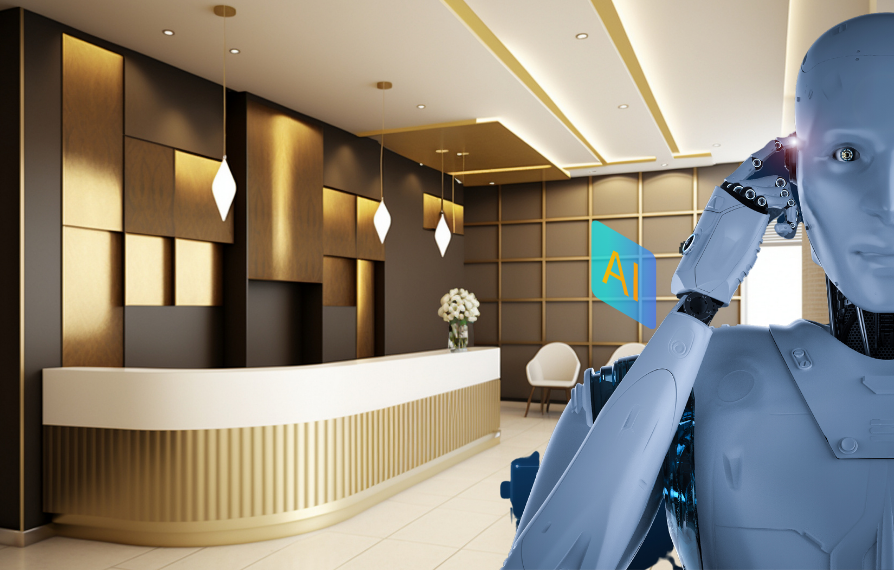How AI Is Going To Revolutionize The Hospitality Sector

- Madvik Retreat
- June 27, 2023
The hospitality sector plays a crucial role in providing exceptional experiences to travelers around the world. In recent years, there has been a significant shift in the industry, with advancements in technology transforming the way hotels, resorts, homestays, and other accommodations operate. Among these technological advancements, artificial intelligence (AI) has emerged as a game-changer, revolutionizing the hospitality sector in various ways. Today, we will explore the potential of AI and how it is reshaping the future of the hospitality industry.
-
Personalized Guest Experiences:
AI enables hotels to provide personalized experiences to their guests, starting from the booking process. With the help of AI-powered chatbots and virtual assistants, guests can interact and receive real-time responses to their queries, making the booking process seamless and efficient. These chatbots are capable of understanding natural language, providing personalized recommendations, and even remembering guest preferences, enhancing the overall guest experience.
During the stay, AI-powered systems can analyze guest data, such as past preferences and behavior patterns, to anticipate their needs and offer personalized recommendations. For instance, smart room assistants can adjust lighting, temperature, and entertainment preferences based on individual guest preferences, creating a homely and comfortable atmosphere.
-
Streamlined Operations:
AI streamlines various operational aspects within the hospitality sector, leading to increased efficiency and cost savings. For instance, AI-powered revenue management systems can analyze market trends, competitor pricing, and historical data to optimize pricing strategies. This ensures that hotels can offer competitive rates while maximizing revenue.
Additionally, AI-based systems can automate routine tasks such as check-ins, check-outs, and concierge services. This allows hotel staff to focus more on delivering exceptional customer service rather than getting bogged down by administrative tasks. AI-powered robots can also assist with tasks like room service, housekeeping, and luggage handling, further enhancing operational efficiency.
-
Enhanced Safety and Security:
Safety and security are of utmost importance in the hospitality sector. AI plays a crucial role in ensuring the safety of guests and staff alike. AI-powered surveillance systems can monitor public areas, identify potential threats, and send real-time alerts to security personnel. Facial recognition technology can enhance security by identifying known offenders or unauthorized individuals, preventing potential incidents.
AI can also be used to detect and mitigate cybersecurity threats. With the increasing reliance on digital systems, protecting guest information and preventing data breaches are vital. AI algorithms can analyze network traffic, identify anomalies, and detect potential cyber threats, ensuring a secure environment for both guests and hotel operations.
-
Efficient Resource Management:
AI can contribute to efficient resource management within the hospitality sector. By analyzing historical data, occupancy rates, and guest behavior patterns, AI-powered systems can predict demand for various resources like electricity, water, and other amenities. This allows hotels to optimize resource consumption, reduce waste, and adopt more sustainable practices.
Furthermore, AI can assist in inventory management by analyzing consumption patterns and automatically restocking supplies when necessary. This prevents stockouts and ensures that guests’ needs are always met promptly.
-
Enhanced Guest Communication and Feedback:
AI-powered communication platforms enable hotels to engage with their guests effectively and collect valuable feedback. Chatbots and virtual assistants can be integrated into messaging platforms, allowing guests to make inquiries, request services, or provide feedback conveniently. These AI systems can understand and respond to guest queries in multiple languages, ensuring seamless communication with international travelers.
Moreover, AI can analyze guest feedback from various sources such as online reviews, social media, and surveys. Sentiment analysis algorithms can extract insights from these data sets, enabling hotels to identify areas for improvement and address guest concerns promptly. By leveraging AI for guest communication and feedback analysis, hotels can enhance their reputation, drive customer loyalty, and continuously improve their services.
-
Intelligent Recommendations and Upselling:
AI algorithms can analyze vast amounts of data, including guest preferences, demographics, and booking history, to offer intelligent recommendations and upselling opportunities. By understanding individual guest preferences, hotels can suggest personalized experiences, such as nearby attractions, restaurants, or special events that align with the guest’s interests.
AI can also identify upselling opportunities during the booking process or throughout the guest’s stay. For instance, if a guest frequently books spa treatments, an AI system can offer a discounted package or suggest additional spa services to enhance their experience. These personalized recommendations not only increase revenue for the hotel but also enhance the overall guest experience by tailoring offers to their specific interests and preferences.
-
Efficient Revenue Forecasting and Yield Management:
Accurate revenue forecasting and yield management are crucial for maximizing profitability in the hospitality industry. AI-powered analytics tools can analyze historical data, market trends, and external factors to predict future demand accurately. This allows hotels to optimize pricing strategies, allocate resources efficiently, and make informed business decisions.
By leveraging AI, hotels can dynamically adjust pricing based on real-time demand fluctuations, upcoming events, or seasonal patterns. These predictive capabilities enable revenue managers to optimize room rates, packages, and promotions to achieve an optimal balance between occupancy rates and revenue generation. Ultimately, AI-driven revenue forecasting and yield management systems empower hotels to drive profitability while ensuring competitive pricing and customer satisfaction.
Conclusion:
Artificial intelligence is revolutionizing the hospitality sector, offering immense opportunities for improving guest experiences, streamlining operations, enhancing safety and security, and managing resources efficiently. As the industry continues to embrace AI, we can expect even more innovative applications that will reshape the future of hospitality.
If you are planning a trip to Goa and looking for luxury accommodations that blend homely comfort with exceptional service, Madvik Retreat offers a range of luxury villas in Goa. Located amidst the serene beauty of Goa, Madvik Retreat provides an ideal getaway for travelers seeking a luxurious and personalized experience. With a combination of technology-driven amenities and a homely atmosphere, Madvik Retreat ensures an unforgettable stay that exceeds all expectations. Visit our website to explore the luxury villas and book your perfect retreat in Goa.
